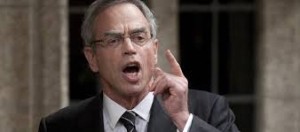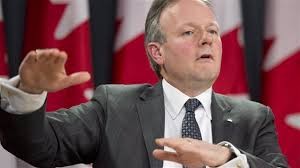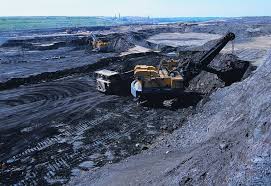 By Ray Rivers
By Ray Rivers
January 29, 2015
BURLINGTON, ON.
Writing this year’s budget is a challenge for federal finance minister, Joe Oliver. His predecessor, the amiable Jim Flaherty had left us believing the government would be finally riding its way to a balanced budget, with possibly some new tax cuts thrown in this year. But the PM, hoping to counter negative polling, jumped the gun and offered up almost $5 million in new cuts and spending, including $2 billion in cuts mostly for the wealthiest families.

Minister of Finance is in way over his head – Prime Minister may have pushed him under a bus.
The problem is the price of oil. Oil is vital to the functioning of today’s modern economy. One would think we’d all welcome a drop in its price, especially those who drive cars. Falling oil prices are actually better than a tax cut for consumers, since it is immediate. I will be discussing this in more detail in my next column.
Suffice it to say that, generally, if the cost of a factor of production, like oil, falls, corporate net income (profit) should rise, except for the oil companies. And consumers with more money in their pockets after filling-up, can be expected to spend it, thereby boosting the economy and creating new taxable employment. All of this should make the budget balancing act easier, and maybe even generate a surplus, you’d think.
But it isn’t working out that way. For one thing the Conservatives cut the corporate income tax rate from 19% in 2009 to 15% today, presumably to encourage greater investment. But that was money for nothing, because investment in Canada has fallen rather than increased, and with it so has productivity. Cutting corporate taxes was a failed proposition federally, as indeed it was here provincially – also contributing to Ontario’s deficits.
When oil prices were flying high, at over $100 per barrel, the taxes from the oil industry more than made up the shortfall – but that was then. Today the oil companies are barely breaking even mining the tar sands. Still the silver lining of low oil prices is that our falling Canadian dollar should make us more internationally competitive. However, as I outlined in my last column, it may take years to revive the non-oil economic sectors of the Canadian economy.

Governor of the Bank of Canada gave Oliver a gift recently by cutting the bank rate.
So with federal revenue down, how does Mr. Oliver balance the budget? Financing Canada’s debt costs us almost $30 billion annually. The Governor of the Bank of Canada gave Oliver a gift recently by cutting the bank rate, thus potentially lowering the cost on new financing. But our declining US exchange rate neutralizes much of that because some of the debt is held by foreigners in US denominated securities- and that costs us more as our dollar falls.
Having just cut taxes, this government is unlikely to raise them again, so the Finance Minister has to look at the cost side of the equation. We should expect more service cuts, further compromising services in immigration, veterans affairs and the military. Don’t be surprised if new taxes appear disguised as user fees, such as more costly park permits, passport applications, etc.
Most likely there will be further deferrals of major capital investments and acquisitions, such as fighter aircraft and arctic patrol ships. Lumping this year’s expenditures into next year’s budget is a favourite shell game of a government in trouble – it’s called creative financing. And expect to see whatever is currently left of the departments of Environment and Natural Resources get further hollowed out.
Of course the Minister may decide it is time to sell off more Crown land, airports or other physical or intellectual property. We have started bunking-in at some foreign embassies, and we should expect that trend to continue, despite the obvious complications for diplomacy and sovereignty. Foreign aid, such as it exists today, might be further wound down – after all U2’s Bono was Paul Martin’s friend.

It was the tar sands that were going to save our economic bacon – then the Saudi’s changed the game.
It could happen – Mr. Harper might claim a balanced budget, even with the extra billions he prematurely slashed from the revenue side. Balancing the budget is a point of principle for the PM, one that he expects will define him and his leadership. But unless the price of oil rises substantially to somewhere close to $100 a barrel soon, showing up with a balanced budget would just be a lot of smoke and mirrors. And the longer the PM waits to announce that budget the harder it will be to justify the numbers.
Keynesian economics says we should pay off the debt in good times so we have borrowing room in the bad times. It has been almost seven years since the 2008 recession hit and this PM got to preside over the largest deficit in the nation’s history. So it has taken a long time to even get close to his goal of being in the black, notwithstanding all the chatter.
In the end, Mr. Harper may well claim a balanced budget, even taking us back to the kind of surplus he inherited when he first became PM. Of course the real question is whether the electors are better off now than they were in 2006? For some the answer is clearly yes. But for the many who find themselves on the other side of that ever-increasing spread between the wealthiest ten percent of Canadians and the others, the answer is not so simple.

How does the Minister of Finance create an economic pie big enough for everyone to eat?
For those middle and lower income Canadians, who make up the vast majority of our population, it is the size of the economic pie and their share in it that matters. And so it is high time that our government started addressing the issue of economic inequality – the distribution of wealth in this country. We could look to Mr. Obama’s recent ‘State of the Union’ address as a starting point for that discussion in Canada.
 Ray Rivers writes weekly on both federal and provincial politics, applying his more than 25 years as a federal bureaucrat to his thinking. Rivers was a candidate for provincial office in Burlington where he ran against Cam Jackson in 1995, the year Mike Harris and the Common Sense Revolution swept the province.
Ray Rivers writes weekly on both federal and provincial politics, applying his more than 25 years as a federal bureaucrat to his thinking. Rivers was a candidate for provincial office in Burlington where he ran against Cam Jackson in 1995, the year Mike Harris and the Common Sense Revolution swept the province.
Background links:
Harper Tax Cuts More on Harper Tax Cuts Pay Back the Debt
Previous Rivers Column on how the PM sees the Canadian economy. Obama’s Take on Equality















Federal net debt has had a 33.3% increase between 2007/08 and 2013/14. For comparison Ontario’s net debt had an 89% increase over the same period. A balanced budget is worth striving for, but it’s really about the debt.
{Source: Federal and Provincial Public Accounts, 2008; Alberta,
Ministry of Finance, 2014; Federal and Provincial budgets, 2014;
calculation by authors}.
We’ll win this fall. Bigger majority than last time. Then we’ll win again in 2019 after the Liberals try their next gimmick following Iggy and Margaret’s son, Justin. There is no seeming end to the gimmicks the Liberals pull out-of-the-hat.
Anyway, the figures on NZ come from OECD. You can argue with them, not me.
Check out this website and follow it down to the OECD comparison of countries.
https://wikinewzealand.org/?cat=169&gclid=COWh-eTGvMMCFSgQ7AodBwkA5w
Cheers!!
interesting article and informative. i have no political affilation, but I do agree the con have lied to us for years and taken $ from middle class cdn and given it to the 10% club. the income tax payable in new zealand is not 16.% it is much higher. higher the what cdn pay. the miiidle class deserves better, lets hope mr f and his con natural fertilizer sales team do not win the election this fall.
One other thought…. All-in personal tax rate in New Zealand is 16.4%. All-in personal tax rate in Canada is 22.6%.
Where is Ray anyway?????
Right, spending his money the way HE wants to, not YOU. Good for him.
Let us start with Ontario. Lets have that Independent Budget Officer and lets see how it goes. Ha Ha. Too funny.
Ontario. Hmmm. So well run, guffaw, guffaw. Too funny.
Lots of challenges coming in Ottawa, for sure. Great to have a sensible, tax-cutting regime in place. Cut those taxes! Let ME spend MY money. Let ME control and enjoy the fruits of MY labour. Not YOU.
I am so totally sick of YOU high tax, spending, controlling Liberals just wasting everything I worked for. Go get your money from someone else. Get off my back Liberals!!!
Cut my taxes. Cut them now.
Ray – The Harper CON’s couldn’t be trusted with the truth on finances, just look at the ongoing nonsense with the Parliament Budget officer, or the $5 billion lie that Flaherty floated when he was Provincial Finance Minister.
There is no way they can balance the budget this year with dropping sales and corporate taxes. Especially given the hit they will take from oil and retail store closings. Thousands of Cdn’s out of work and not paying income taxes.
Watch for outright lies in the budget and promises that are years out. Sure they will promise tax cuts, but push it out so far into the future, that the public will never see them.
Cdn’s need an independent budget officer with teeth and an office budget to actually hold the Government to account (lol). It’s too bad the CON’s took that away from Cdn’s so they can plan fast and loose with the numbers.